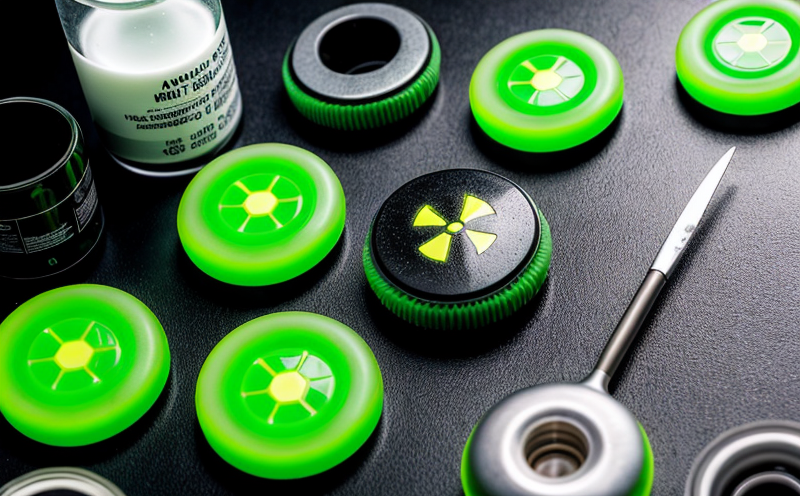ISO 22492 Tritium Measurement in Beverages
The measurement of tritium in beverages is a critical aspect of ensuring product safety and compliance with international standards. ISO 22492 provides specific guidelines for measuring tritium in water, which can be directly applied to the testing of other beverages such as fruit juices, sports drinks, and carbonated soft drinks.
Traces of tritium are naturally present in water due to its widespread use as a tracer and label in various research and industrial processes. In some cases, however, intentional or accidental contamination can lead to elevated levels that may pose health risks if consumed. This is especially relevant for beverages intended for human consumption.
Our laboratory adheres strictly to ISO 22492 methodologies, ensuring accurate and reliable measurements of tritium in beverages. Our approach involves careful sample preparation, precise measurement techniques, and rigorous data analysis to ensure compliance with international standards and regulatory requirements.
The testing process typically begins with the collection of representative samples from production batches or finished products. These samples are then prepared according to specified protocols detailed in ISO 22492. The use of appropriate reference materials and standard operating procedures guarantees consistency across all tests conducted within our facility.
For accurate measurement, we utilize state-of-the-art instrumentation capable of detecting even minute quantities of tritium. Our analytical methods are validated against internationally recognized standards such as ISO 22492 to ensure reliability and accuracy in results. Once analyzed, the data undergoes thorough scrutiny before being reported back to clients.
Understanding the importance of this service extends beyond mere compliance; it reflects a commitment to consumer safety and quality assurance. By adhering strictly to international standards like ISO 22492, we provide peace of mind for those responsible for maintaining high-quality products within their respective organizations.
| Application Example | Description |
|---|---|
| Monitoring Tritium Levels in Water Supplies | Regular monitoring helps detect any potential contamination issues early on, ensuring safe drinking water. |
| Testing for Tritium in Soft Drinks | This ensures that manufacturers are meeting strict regulatory limits set out by health authorities worldwide. |
| Detecting Tritium Spikes During Production | Quickly identifying and addressing anomalies helps prevent batch recalls or safety concerns. |
- Compliance with ISO 22492 standards ensures consistent, accurate results.
- Precision instrumentation guarantees minimal detection limits for tritium levels.
- Data validation against international benchmarks enhances trustworthiness of findings.
Eurolab Advantages
At Eurolab, we pride ourselves on delivering comprehensive and reliable testing services tailored to meet the specific needs of our clients operating in diverse sectors. With regard to ISO 22492 tritium measurement in beverages, here are some key advantages:
- Expertise & Experience: Our team consists of highly skilled professionals who have extensive experience working with complex analytical techniques.
- Innovative Solutions: Leveraging cutting-edge technology allows us to stay ahead of industry trends and provide innovative solutions.
- Comprehensive Services: From initial consultation through final report, we offer end-to-end support ensuring a seamless experience for our customers.
Quality and Reliability Assurance
To ensure the highest level of quality and reliability in our testing services, Eurolab employs several robust measures:
- Strict Compliance: All tests follow strict adherence to relevant international standards including ISO 22492.
- Data Accuracy: Rigorous quality control procedures are implemented throughout the testing process, from sample preparation to final analysis.
- Certification: Our facilities and personnel maintain certifications that validate our expertise and commitment to excellence.
| Application Example | Description |
|---|---|
| Monitoring Tritium Levels in Bottled Water | This helps bottlers maintain consistent product quality and avoid recalls due to unsafe levels. |
| Detecting Tritium in Imported Beverage Products | Ensures imported goods comply with local regulations regarding radioactive contaminants. |





